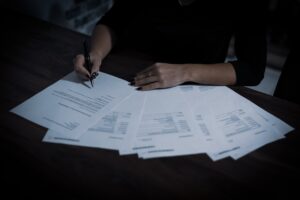
What Do Assessors Use to Assess BPP Taxes?
Hint: It’s Not Federal Depreciation
When a business opens, they acquire assets needed to operate, such as computers, copiers, desks, phones, machinery, etc. These items, for federal purposes, are categorized as follows:
- Three-year properties such as tractors, tools and some livestock.
- Five-year properties such as computers, office equipment, cars, light trucks and construction assets.
- Seven-year properties such as office furniture, appliances and most other property not otherwise categorized.
Real Estate is written off over a longer period of time such as:
- 27.5 years (residential rental properties)
- 39 years (commercial buildings)
Over time you are allowed to depreciate the cost of these assets. Land, however, is not depreciable, but land improvements such as roads, sidewalks or landscaping may be written off over 10, 15 or 20 years depending on the specific nature of the asset.
Many businesses don’t realize that federal depreciation isn’t what most assessors use to assess their personal property taxes. A few states use federal depreciation for personal property taxes, including Missouri, Nebraska and South Carolina. Other states and/or counties develop depreciation schedules based on their research as to how long the useful life of certain equipment is. Once this is determined, they will then assign index factors (used to determine the replacement cost) and depreciation factors based on the useful life and age of the equipment. The overall factor is then used to calculate the equipment’s market value. If assets remain on your depreciation schedule, they are taxable for business personal property taxes — even if the netbook value is down to zero. This is partly why some assessors have depreciation rates that go down to a residual rate of 10-20% of the cost.
While most of the time using federal depreciation would give businesses a more favorable value for business personal property taxes, there are other ways to arrive at a market value other than just using the county depreciation factors. When states set the depreciation tables for business personal property, there isn’t much research into the type of equipment, how long it might last, etc. Many states will keep the factors the same as last year or adjust them by altering the index factors.
Another option owners have if they don’t agree with the factors being used by assessors to assign value to their equipment is to research the equipment’s market value and provide backup to support lower values for the equipment. We see this done quite a bit in Texas, where the business personal property rendition of the taxable property asks for the owners’ opinion of value.
If you need assistance filing your business personal property returns, be sure to contact a well-versed property tax professional. You want to make sure the one you choose knows the states your businesses are in.



